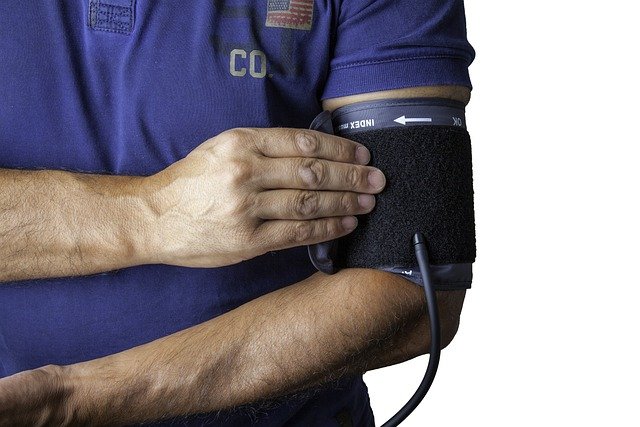Don’t Ignore These Unusual Heart Attack Signals
Heart attacks don’t always start with chest pain. In fact, the body often sends subtle, unusual signals that are easy to miss — until it’s too late. From unexplained fatigue to jaw discomfort or nausea, these lesser-known symptoms may point to a serious cardiac issue. This article breaks down the early warning signs you should never ignore, especially if you're at higher risk.

What are the uncommon symptoms of a heart attack?
While chest pain is the most recognized symptom of a heart attack, there are several less common signs that shouldn’t be overlooked:
-
Unexplained fatigue or weakness
-
Shortness of breath
-
Neck, jaw, throat, or back pain
-
Nausea or vomiting
-
Cold sweats
-
Lightheadedness or dizziness
-
Indigestion or heartburn-like sensations
-
Arm or shoulder pain (particularly on the left side)
These symptoms can occur independently or in combination, and they may come and go over time. It’s crucial to pay attention to these signals, especially if they’re persistent or worsening.
Which early warning signs of a heart attack are often overlooked?
Many people dismiss early warning signs of a heart attack, attributing them to less serious conditions. Here are some commonly overlooked symptoms:
-
Unusual or extreme fatigue
-
Sleep disturbances
-
Anxiety or a feeling of impending doom
-
Mild chest discomfort that comes and goes
-
Shortness of breath during normal activities
-
Irregular heartbeat or palpitations
-
Swelling in the legs, ankles, or feet
-
Persistent cough or wheezing
These symptoms may appear days or even weeks before a heart attack occurs. Being aware of these early warning signs can help you seek medical attention sooner, potentially preventing a more serious cardiac event.
What are strange heart attack signals that aren’t chest pain?
While chest pain is the hallmark symptom of a heart attack, some people experience unusual signals that don’t involve chest discomfort at all. These atypical symptoms can include:
-
Sudden, unexplained sweating
-
A feeling of fullness or squeezing in the center of the abdomen
-
Pain that spreads to the arms, shoulders, jaw, neck, or back
-
Sudden weakness or paralysis on one side of the body
-
Fainting or loss of consciousness
-
Severe anxiety or panic attacks
-
Flu-like symptoms, including nausea and cold sweats
These strange signals can be particularly misleading, as they may be mistaken for other conditions such as indigestion, muscle strain, or even anxiety attacks.
How does your body warn you before a heart attack?
Your body often sends warning signals in the days or weeks leading up to a heart attack. These may include:
-
Increasing frequency of angina (chest pain or discomfort)
-
Shortness of breath that worsens with activity
-
Unexplained fatigue or weakness
-
Swelling in the legs, ankles, or feet due to fluid buildup
-
Irregular heartbeat or palpitations
-
Dizziness or lightheadedness
-
Persistent indigestion or nausea
In the United States, heart disease is the leading cause of death for both men and women. Recognizing these early warning signs can be crucial for timely intervention and prevention of a full-blown heart attack.
What symptoms of heart issues do people often ignore?
Many people dismiss or rationalize symptoms that could indicate heart problems. Some commonly ignored signs include:
-
Mild chest discomfort or pressure
-
Shortness of breath during everyday activities
-
Unexplained fatigue or weakness
-
Swelling in the extremities
-
Persistent cough, especially if accompanied by white or pink mucus
-
Nausea or lack of appetite
-
Confusion or impaired thinking, especially in older adults
-
Sleep disturbances or insomnia
These symptoms may seem unrelated to heart health, but they can be important indicators of underlying cardiovascular issues. It’s essential to consult a healthcare professional if you experience any persistent or concerning symptoms, especially if you have risk factors for heart disease.
How can you differentiate between heartburn and heart attack?
Distinguishing between heartburn and a heart attack can be challenging, as both conditions can cause chest discomfort. However, there are some key differences to be aware of:
Heartburn:
-
Usually occurs after eating or when lying down
-
Causes a burning sensation in the chest or throat
-
May be relieved by antacids
-
Rarely spreads to other areas of the body
Heart Attack:
-
Can occur at any time, even during rest
-
Often feels like pressure, squeezing, or fullness in the chest
-
May be accompanied by shortness of breath, nausea, or cold sweats
-
Can spread to the arms, jaw, neck, or back
-
Doesn’t respond to antacids
If you’re unsure whether you’re experiencing heartburn or a heart attack, it’s always better to err on the side of caution and seek immediate medical attention. Remember, early intervention can be life-saving in the case of a heart attack.
Understanding and recognizing these unusual heart attack signals is crucial for early detection and prompt treatment. If you experience any of these symptoms, especially if they’re severe or persistent, don’t hesitate to seek medical help. When it comes to heart health, it’s always better to be safe than sorry.
This article is for informational purposes only and should not be considered medical advice. Please consult a qualified healthcare professional for personalized guidance and treatment.




